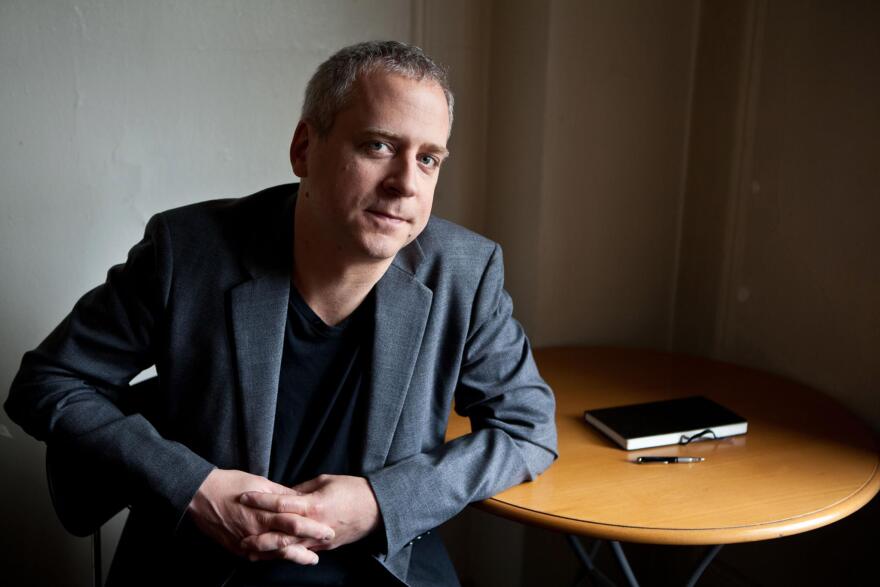Jeremy Denk’s new recording spans seven centuries, with pieces by 24 composers unfolding like “sonic snapshots” in a musical time-lapse, and it’s WCRB’s CD of the Week.
Pianist Jeremy Denk’s powers of communication are as vivid in the world of language as they are in music. His blog “Think Denk” gradually hooked thousands of readers on his funny and profound ruminations on life and music, and now he’s the winner of a MacArthur “Genius” fellowship and a provocative voice in the New Yorker, the Guardian and the New Republic.
His finely-tuned radar for subtleties and connections in meaning also lends to his signature sound at the piano. His is an intimate approach with a charged intensity.
Denk’s latest recording is the result of a Lincoln Center request for a unique evening of music. His memory of Oberlin College’s Music Appreciation 101 class tugged at his imagination. “Wouldn’t it be amazing,” he asked himself, “to experience this sweep and arc in one sitting? To get the perspective of time, to hear sounds and their priorities shifting?” After making some obvious (and anguishing) choices, he’s created an experience that fills out two CDs.
Disc one begins in the 1300s with just two voices, a haunting medieval song by Machaut called “Sweet Friends.” Denk reminds us that the foundation of all music is the miracle of counterpoint – simultaneous lines of music working together. “If you don’t care about counterpoint,” says Denk, “you should. It is music’s superpower.” He moves on to a gorgeous lament by Binchois, and then continues to track the increasingly expressive and virtuosic effects of added voices. Dance makes its first appearance on the recording in music by Dufay. The CD ends with a milestone: Bach’s Chromatic Fantasy and Fugue.
On disc two, “the narrative shifts from one musical frame of reference to another – from counterpoint to harmony, from a language of interacting voices to a language of chords.” Denk starts with Mozart’s simplicity, and moves to Beethoven’s storms and contradictions; then on through the Romantic explorations of Schumann, Chopin, Wagner, and Brahms. Schoenberg arrives, “hurling question marks into the future” as styles break apart. Debussy rethinks sound. Stockhausen pins every nuance to mathematical control, and then Philip Glass rejects “all this complex fuss.” The wild and brilliant etude “Autumne à Varsovie” could have been the recording’s closer. But its violent ending seemed too dark.
So Denk ends instead with a return to the 1400s – a reprise of Binchois’s affecting Triste Plaisir.
Give this recording a hundred minutes of your uninterrupted time. You’ll be amazed by the music, the playing, and the booklet he’s written as your guide.
Here’s Triste Plaisir, the Binchois piece at the beginning and ending of the journey:
For more information and to purchase this album, visit ArkivMusic.


